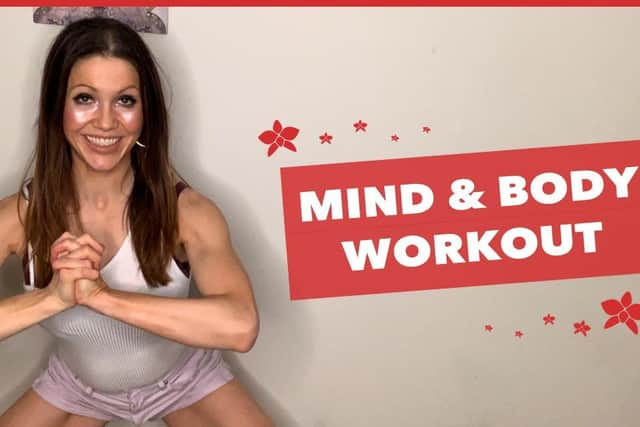The Sparkle Coach: Exercise provides a valuable form of mental health therapy
and live on Freeview channel 276
I am on a walk with a therapist and it was the last thing I felt like doing today. I have work deadlines to meet, a home to clean and I felt stressed yet comfortable in the warm cocoon which is my home office.
But I know that the best remedy for me is movement and better still when it is outdoors, as much as I don’t feel like venturing out into the cold air.
Advertisement
Hide AdAdvertisement
Hide AdIt is only with years of trial and error when it comes to managing my mental and physical health, that now in my 30s I have fully embraced the power of ‘fitness therapy.’ I have even asked to go on walks, where possible, instead of my usual ‘sit-down’ mental health appointments and work meetings.


Whether it be with a professional or on your own, the power of exercise as a form of therapy for managing our mental health is profound.
The NHS website states that exercise can “boost your mood” and help with mild to moderate conditions such as depression.
I’m not alone either in my advocacy for ‘fitness therapy’ as former Royal Marine Rob, who set up the Gym Self Harmer’s Club to build a community of like-minded people who believe in the power of exercise for their mental health, explained to me in the latest episode of my podcast Recovery Road: “Whilst experiencing PTSD and a mental breakdown, I turned to exercise which gave me an outlet like no other. As the saying goes, ‘when you’re having a good day train hard and when you’re having a bad day train harder.’”
Advertisement
Hide AdAdvertisement
Hide AdOn another episode of my mental health recovery podcast, my partner and personal trainer Mike Green explained the power of exercise which helped him mentally cope with injuries which put an end to his career as a footballer.
He said: “I was devastated and depressed after suffering a bad injury which closed the door on one of my dreams.
“But I slowly rebuilt my life and retrained as a personal trainer, a decade ago, and it was exercise that rehabilitated my mind and body.”
Not only does exercise release endorphins but it gives us more energy too, especially when we are feeling low or anxious, it may be the last thing we feel like doing but anything is better than nothing.
Advertisement
Hide AdAdvertisement
Hide AdYou don’t have to overwhelm yourself with a long high intensity workout, even just 15 minutes of yoga and focused breathing can really boost your mood.
Yet, too often when it comes to mind and body ailments we resort to quick fixes and fads to temporarily dull our aches and pains.
I’d love to see professionals prescribe exercise more widely as I genuinely believe that exercise can give us the right foundations to help us lead more fulfilling lives.
It’s easy for us as health and fitness coaches to tell people to “get more sleep” or to encourage people to “eat well” but actually when people implement workouts or the minimum recommendations of 150 minutes of moderate intensity exercise per week, into their lives, then they tend to have a better chance of sleeping and eating well because their mind and body feel stronger and fitter.
Advertisement
Hide AdAdvertisement
Hide AdFind exercise you enjoy, or a professional to motivate you and plan it into your schedule because it will save you time and money in the long run.
You can listen to my podcast episodes on fitness therapy by downloading Recovery Road from Apple Podcast, Spotify or by going to https://mamamei.co.uk. You can follow me @TheSparkleCoach on all social media.